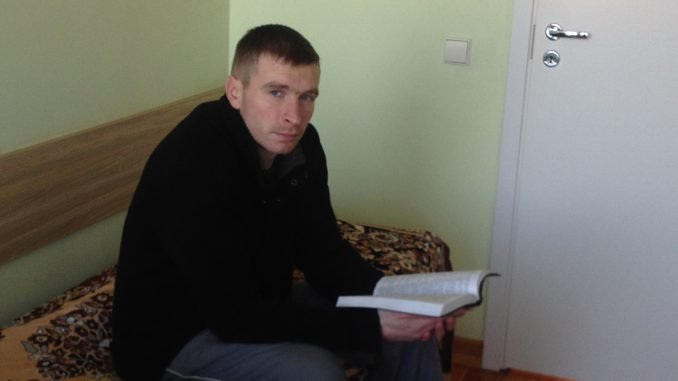
Muka had spent a third of his life behind the bars, stealing, robbing, selling drugs. He thought that this time all would turn out differently.
For months, he had been clear of drugs. Shortly before coming out he smoked his last cigarette and threw away the lighter determined to quit. In preparation for a new life, he traded his cigarettes with the other inmates for two pairs of tracksuit pants, a pair of jeans and sneakers. He bought shaving products, tooth paste and a toothbrush at the prison store, too.
This was the sixth time Muka had been released from prison. But this was the first time he truly felt that he didn’t want to go back, and this time someone was waiting for him.
“Hey, there is Rimas sitting,” he heard the voice of a former prison mate who was moving in his direction from the parking lot. He was coming together with their mutual acquaintance Nerijus Čekavičius whom Muka met in prison and now calls the man who changed his life.
Čekavičius was a former drug addict who had been imprisoned twice for theft. By now, he had a wife and he had been running his car repair shop for 13 years. His wife is a priest and Čekavičius himself is a preacher who holds seminars in the prison.
After greeting they drove to the nearby town of Alytus where Muka moved into an apartment with his former prison mate. Friends helped him enroll in a benefit programme for the unemployed. Čekavičius and Muka talked about God for hours. In the evenings they visited the homes of other believers for food and talks.
A week later Muka had to make a decision: return to his previous life of drugs or change his circle of friends. There were two options. The first was the Minnesota program which runs for 28 days in another town, Kaunas. It would probably reduce his drug addiction, but wouldn’t change his personality. The other alternative was a social rehabilitation center, located in Kėdainiai, where former inmates and other addicts stay for a year.
“I didn’t want to do drugs and steal anymore, but I didn’t want to go to rehab, either,” reminisces Muka. He decided to go to Kėdainai. “I felt tired and I thought I didn’t know how to live anymore. I couldn’t really talk to people if they didn’t approach me. I only knew how to be rude.”
In the evening before leaving, during the sermon, Muka started to cry. “I don’t recall myself crying like that in a long time.”
The next day he took a bus to Kėdainiai where he was met by a member of the church. They went for a medical examination to fill out forms in the local clinic and then moved to the rehab center called “Lighthouse of Hope.”

Be the first to comment